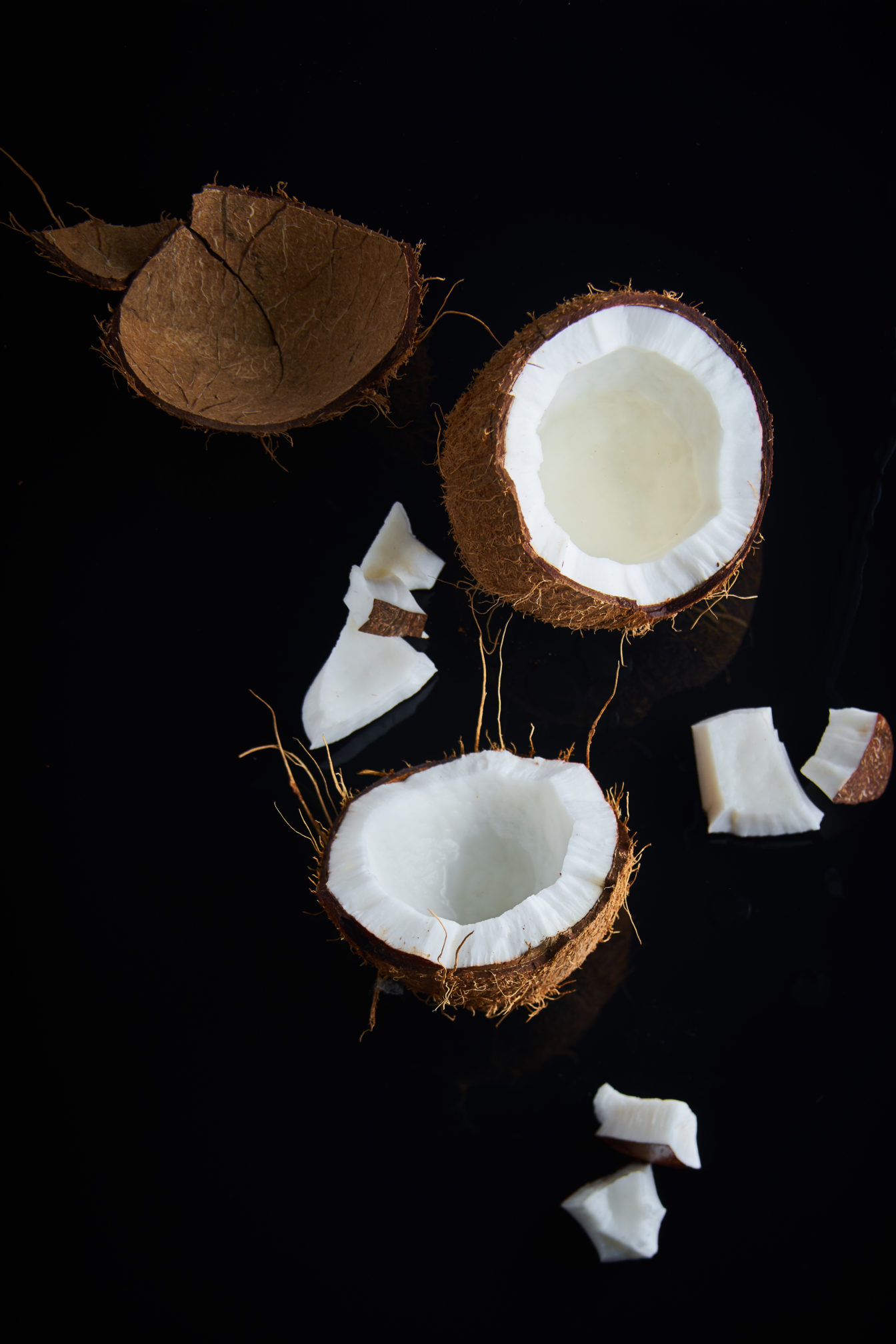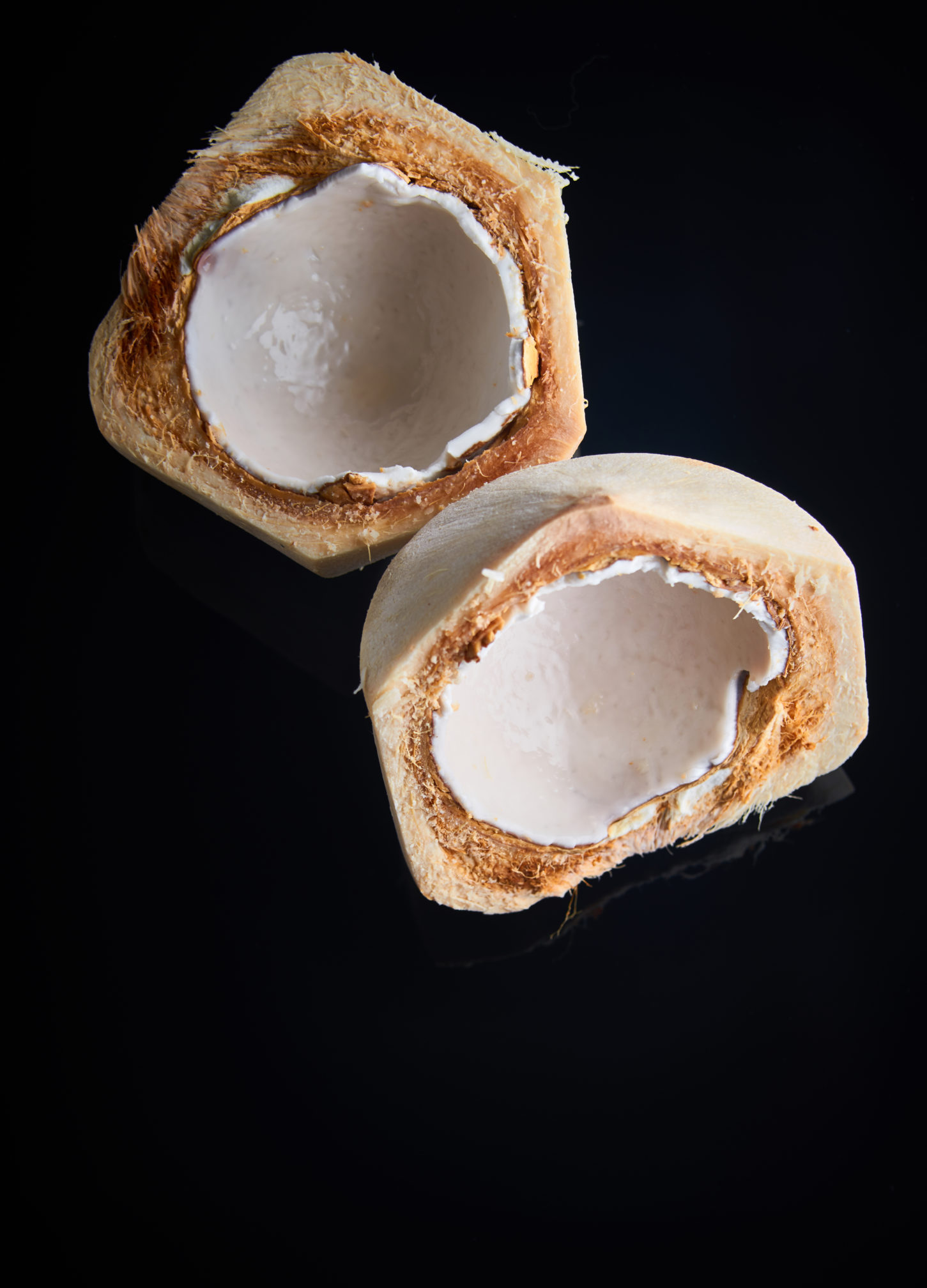Coconut
An exotic emblem
The coconut weighs between 3 and 6 kg; its shell is thick and its pulp is white. Before it is ripe, it contains about 500 ml of a milky liquid called “coconut water”. When it ripens, this liquid turns into flesh. Its flavour is subtle and sweet, with delicate hints of hazelnut. It can be enjoyed plain, grated, cut into strips, dried or powdered in pastries. Coconut water is used in fish dishes, sorbets, ice creams, cocktails, etc.
The coconut is very rich in dietary fibre, which contributes to the proper functioning of intestinal transit and digestion. It is also packed with nutrients, such as iron which plays a role in the formation of red blood cells, manganese which is useful for the nervous and immune systems, and copper which is needed for the formation of haemoglobin and collagen, a protein involved in tissue structure and repair.
Water for sportsmen and women
Coconut water is light (20 kcal per 100 ml), low in calories and very refreshing. It is the perfect drink for recovery after exercise or during sport. It is indeed very rich in minerals, which it replenishes in the body; it is also surprisingly rehydrating. Its composition is very similar to that of blood plasma. It therefore contributes to blood homoeostasis and an acid-base balance. It is known for its ability to detoxify the body and improve the immune system !
Rich in nutrients and low in fat, it is naturally slightly sweet. Fresh coconut water is an ideal drink for boosting energy thanks to its high content of minerals such as potassium, magnesium, calcium, sodium and phosphorus, which help to improve physical performance. Sportsmen and women are becoming more and more enthusiastic about it.

